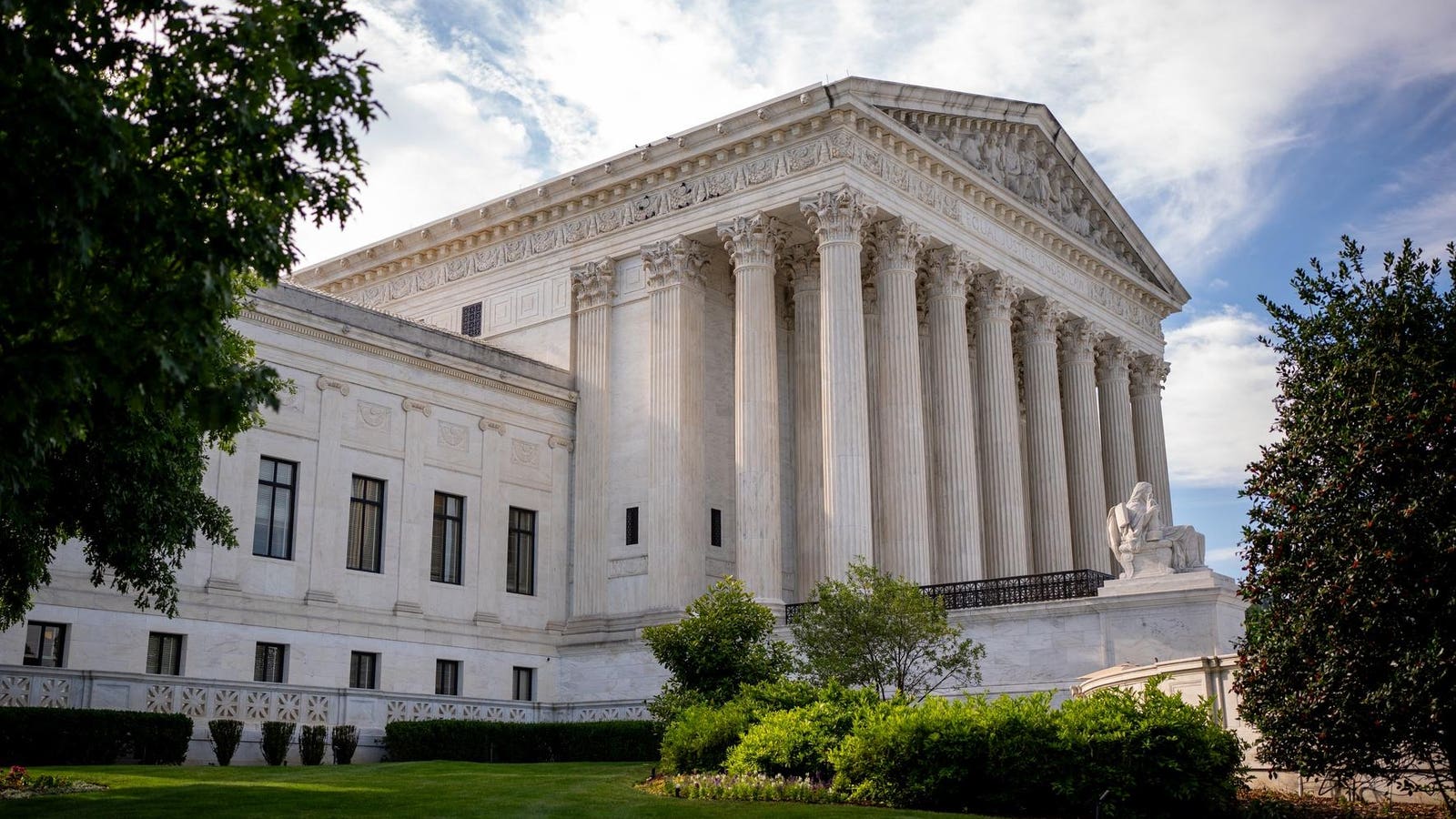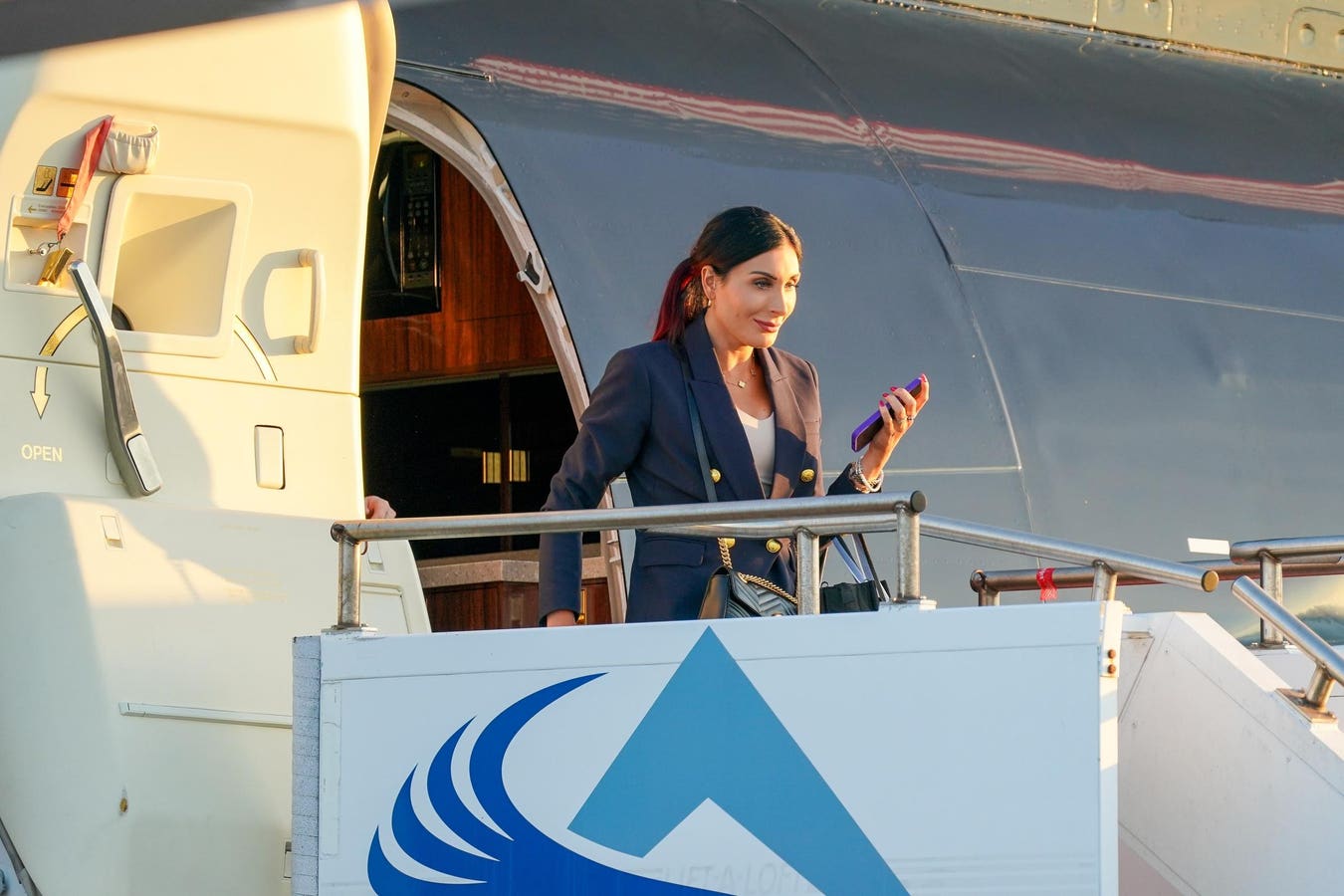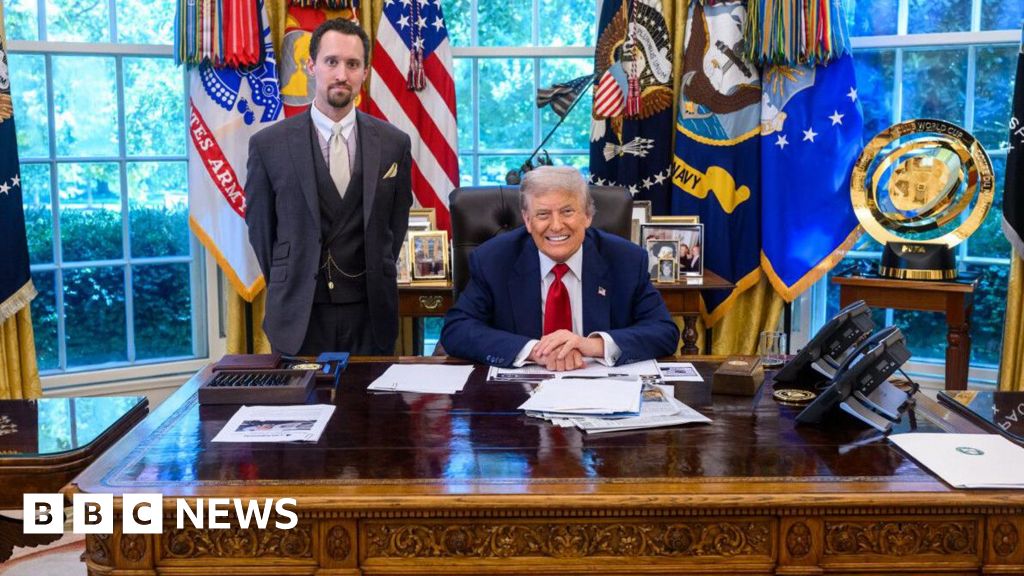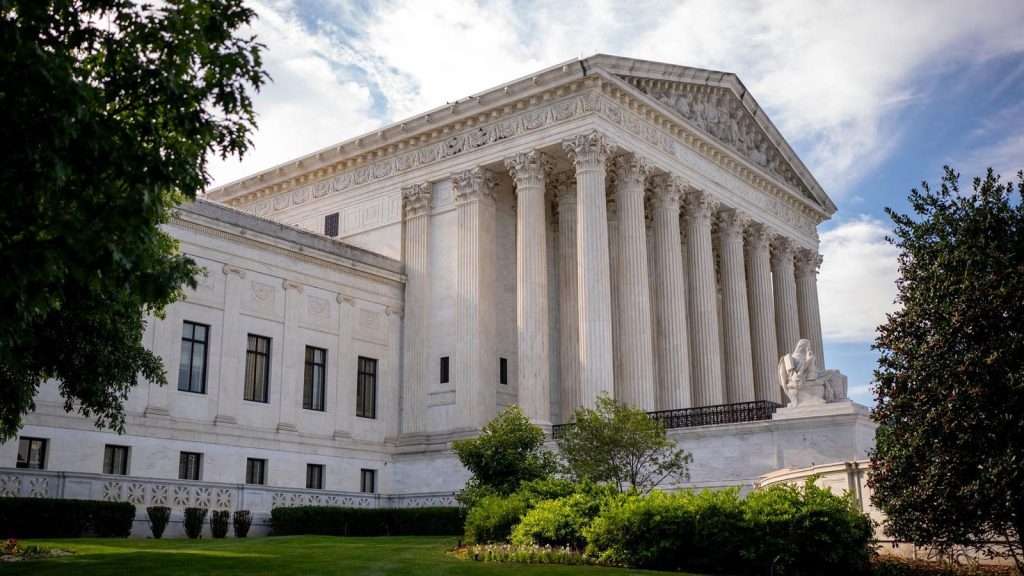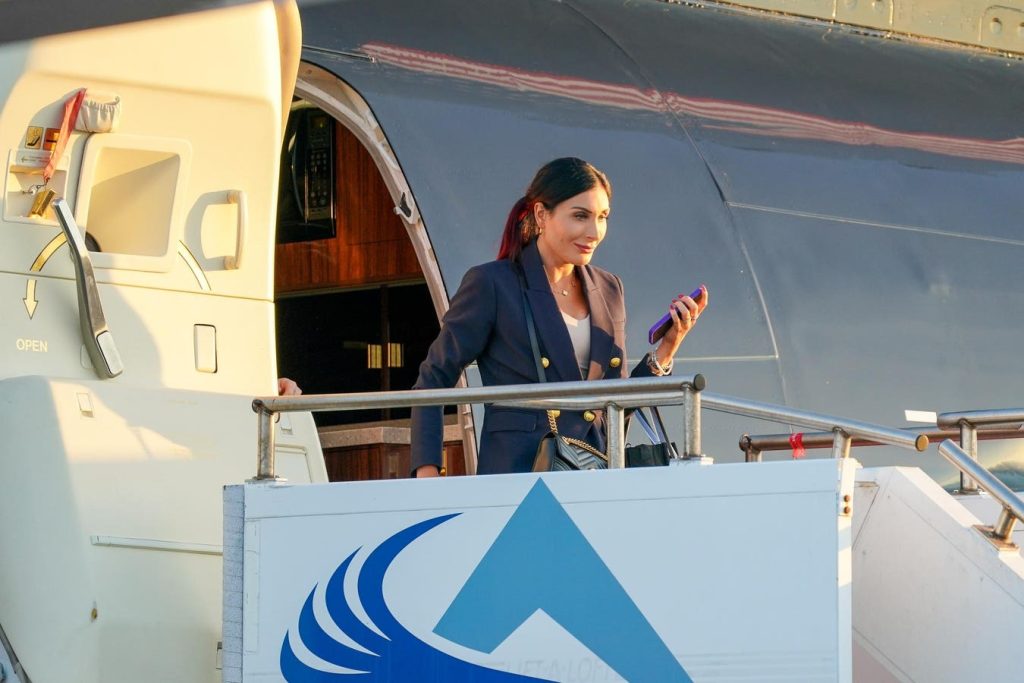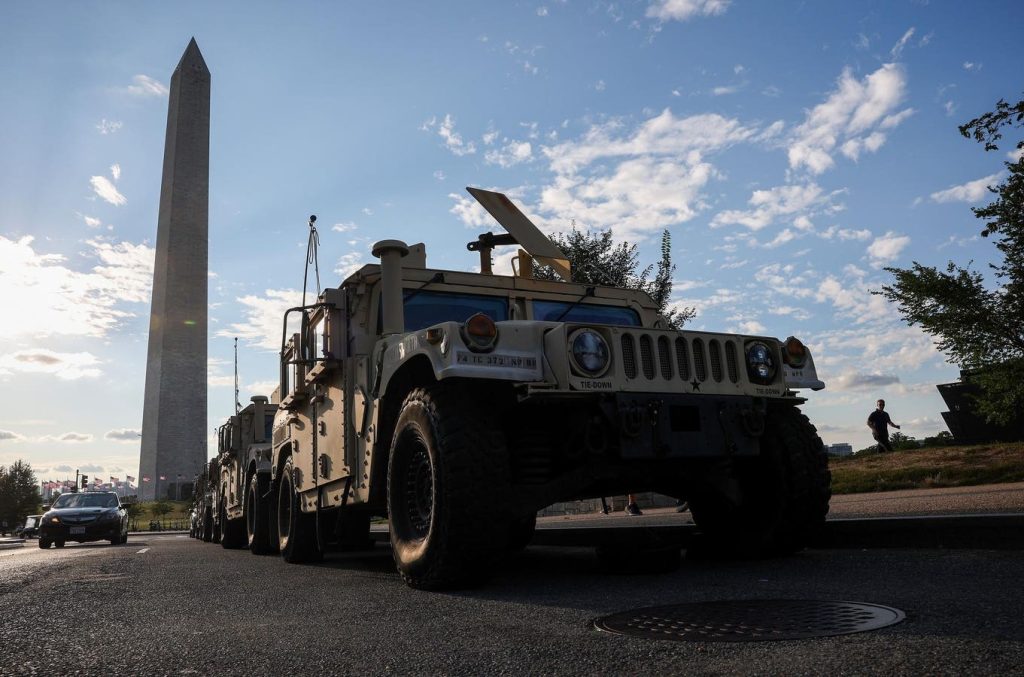Topline
Florida Gov. Ron DeSantis on Thursday announced plans to open a second immigration detention facility in the state, after a federal judge ordered a two-week construction halt on the highly controversial “Alligator Alcatraz” after concerns were raised about the construction allegedly violating environmental laws.
FILE – Florida Gov. Ron DeSantis speaks during a news conference about a recent immigration enforcement operation, at the South Florida office of U.S. Immigration and Customs Enforcement and Enforcement and Removal Operations, May 1, 2025, in Miramar, Fla. (AP Photo/Rebecca Blackwell, file)
Copyright 2025 The Associated Press. All rights reserved.
Key Facts
DeSantis called the arrangements to establish the detention center—dubbed the “Deportation Depot”—“yet another step” in supporting President Donald Trump’s immigration policies.
The planned facility is set to be located at the Baker Correctional Institution, a state prison in north Florida “right down the road” from Lake City Gateway Airport, which would operate deportation flights, according to DeSantis.
DeSantis said the facility will be operational “soon,” though he did not state a timeline for the project or how much it would cost to operate an immigration detention facility at the state prison.
The announcement comes as a federal judge considers whether to temporarily shut down “Alligator Alcatraz,” the $450 million facility in the Florida Everglades, after environmental groups raised concerns.
Critics, including numerous Democratic lawmakers, have blasted the facility for allegedly deplorable conditions detainees are kept in, calling them inhumane, though the Trump administration has denied allegations of mistreatment.
What Do We Know About The ‘deportation Depot’?
The facility, a “massive part here at Baker Correctional that is vacant,” is expected to hold 1,300 beds with an anticipated capacity of 2,000, state officials told the Associated Press. DeSantis said he initially looked to build a second facility in Camp Blanding—a military training base—but that its runway didn’t have a large enough capacity to hold large planes to “process, stage and then return illegal aliens to their home country.” The new facility will run in partnership with the Department of Homeland Security, which reimbursed construction costs for “Alligator Alcatraz” and intends to reimburse costs for the north Florida facility, according to DeSantis. The Miami Herald reported that the site has been vacant for several years after closing down in 2021, citing severe staff shortages. DeSantis said Florida needs “additional capacity beyond what we are doing in south Florida.” Last week, a federal judge ordered the state’s flagship immigration detention center—built on a remote airstrip in the Everglades—to temporarily stop construction after hearing arguments over whether the facility stood in violation of environmental laws.
How Has ‘alligator Alcatraz’ Been Received By Critics And Backers?
DeSantis said Thursday that Florida has done “more than any other state by a country mile” in detaining people living in the U.S. illegally. He said “many” at “Alligator Alcatraz” have already been “processed out,” with “more and more” flown out of the country every day. The facility’s main legal holdup is accusations of environmental law violations by environmental groups and the Miccoshukee Tribe, which alleged in June that DHS and Immigration and Customs Enforcement permitted the facility’s construction “without conducting any environmental reviews.” But “Alligator Alcatraz”has faced a broader public backlash over the alleged mistreatment of its detainees and accusations of violating civil rights laws. Immigrants’ rights advocates represented by the American Civil Liberties Union sued the Trump administration in July over alleged lack of access to legal counsel and violations of due process at the Everglades facility. Detained immigrants have told the Associated Press the cells were like “zoo cages” and described them as “inhuman,” reporting that each cell is overrun with mosquitos, crickets and frogs. A green card holder said they have “no way to bathe” and that “the meals have worms.” Attorneys have said they’ve waited hours to speak with clients, some of whom are as young as 15. In July, the Miami Herald reported a list of 700 current and prospective detainees, over 250 of whom have no criminal convictions or pending charges. The Trump administration has defended the creation of “Alligator Alcatraz,” with DHS Secretary Kristi Noem having insisted the facility exceeds federal standards. Trump has praised the facility as “so professional, so well done” after touring the site with DeSantis.
Are Other States Considering Similar Detention Centers?
In July, Noem said she had conversations with five Republican governors about the prospect of building similar facilities. Earlier this month, she announced plans to create a correctional facility to hold up to 1,000 beds in Indiana, nicknaming it the “Speedway Slammer.” In South Carolina, Gov. Henry McMaster hasn’t ruled out the possibility of partnering with DHS to build a facility similar to “Alligator Alcatraz.”



